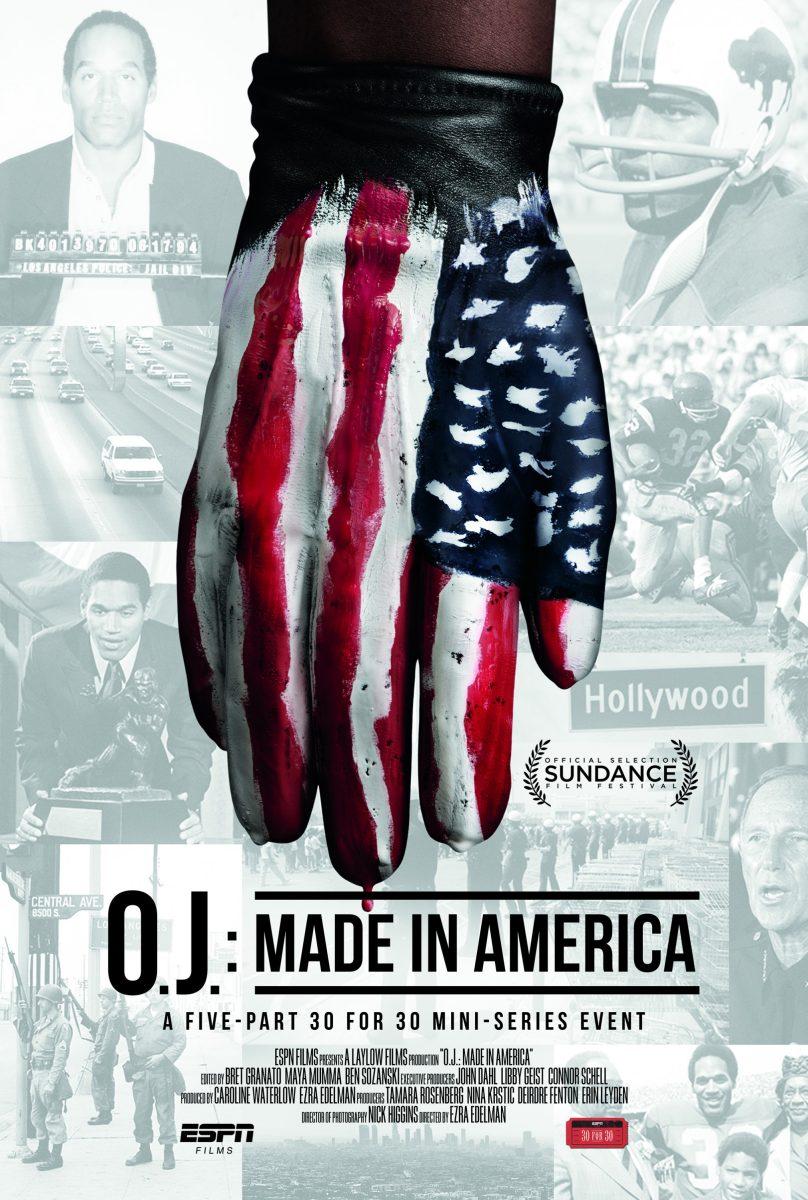Now streaming on Hulu, Amazon, and WatchESPN: ‘O.J.: Made in America’ by Ezra Edelman
Since the mystery of the summer murders of 1994, the trial of former NFL running back O.J. Simpson has obsessed millions of Americans. Over twenty years since the infamous “not guilty” verdict, the event remains an essential chapter in our country’s legal history.
That’s why it’s not surprising that Ezra Edelman’s five-part ESPN documentary on the life of the defendant is so addictive. The channel’s ‘30 for 30’ series has produced fascinating investigations before (including Marina Zenovich’s Fantastic Lies earlier this year), but never one quite like this.
It is to be predicted that such a detailed inspection of Simpson’s rise-and-fall life story would be so viscerally entertaining. What elevates even the most revealing O.J. moments is Edeleman’s broad lens of the history of race relations and police brutality in Los Angeles.
After spending most of his NFL career in snowy, dull Buffalo with the Bills, O.J. was happy to return to the sun of San Francisco and the 49ers in 1978. At the University of California in the 1960s, his legend began. It’s easy to forget just how incredible he was as a player. If there’s one thing Edelman can’t possibly show two sides of, it’s O.J.’s on-field talent. He was the first player to amass 2,000 rushing yards in a single season.
As a revered Californian sports figure, living in the affluent L.A. suburb of Brentwood after his NFL retirement was picture-perfect. Add to that his winning personality, numerous endorsement deals, and acting roles in several films, he was someone nearly everyone adored, no matter his color.
He infamously said, “I’m not black, I’m O.J.” He did not support any black causes during or after his NFL days (before the murder trial). This might have come back to haunt him in the public opinion of the African-American community had it not been for black L.A.’s general distrust of the legal system, which Edelman methodically shows to be completely justified.
When his second wife, Nicole Brown Simpson, was found murdered along with Ron Goldman in a Brentwood home, O.J. was immediately implicated in the deaths by DNA evidence. He initially did not turn himself in, leading to the bizarre police chase in the iconic Ford Bronco.
The fourth episode of the series focuses exclusively on the trial. This episode is maximum entertainment because of its level of detail. There never was, nor ever will be, a crazier case in the American court system.
This fourth episode is also so engaging because of the care taken in the second and third installments to show the abuse — both mental and physical — present in the relationship. A climactic outburst almost seemed inevitable, both because of these domestic circumstances and the inaction of the authorities and others to believe Nicole Brown’s greatest fears.
As the series ends, so does O.J.’s dignity. In 2006, he made a deal to publish a book eventually titled ‘If I Did It: Confessions of the Killer,’ which was clearly in poor taste. He did this to pay off the civil judgment from a wrongful death trial won by the Goldman family. He is now on parole after being convicted of robbery.
My brief summary of the events explored in this film doesn’t do it justice. My advice would be to watch it immediately. Just make sure you’ve got the time for each section (most of them are around 90 minutes). No matter what you think you may know about O.J., you don’t know the half of it.
O.J.: Made in America = 4.5/5
‘O.J.: Made in America’ is unrated, contains mature thematic elements, strong language including sexual references, and violent images.










